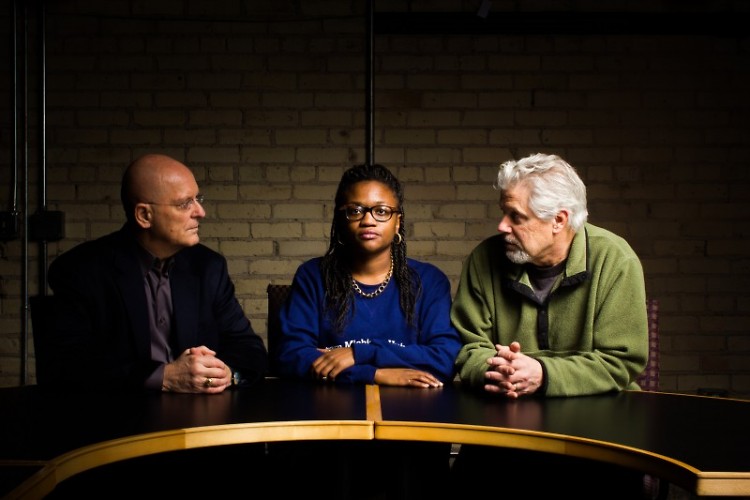Water is a natural resource that, in the developed world, we often take for granted. On a daily basis, most people in the United States do not question whether or not their drinking water is safe. In Grand Rapids, most people don’t think about tap water so dangerous that its consumption could lead to negative health outcomes and bathing in it a dermatological disaster. Environmental activism exists, in this country, as an idealists’ pursuit, not as an existential emergency.
However, there are the stories that have gone untold for far too long that are now being thrust into the light as a result of the disaster in Flint.
There are people who do not have access to clean water because of disastrous and unjust public policy. There are people who are being denied access to clean water because they lack documentation. There are people who live in lead infested homes where their children are being irreversibly damaged by passive housing policy. There are children going to schools where rats are an expectation, mushrooms are growing in classrooms and coats must be warn by students in class. There are communities being disparately affected by environmental hazards because we intentionally allow for private industry to burn trash in a way that results in permanent respiratory damage for those forced to live near it.
What do all of the aforementioned spaces have in common? They are disasters concentrated in communities of color.
At Partners for a Racism-Free Community we work to build racially equitable environments by examining institutions and reshaping the dynamics of those entities. Our work is, first and foremost, affected by people but it is also rooted in a recognition of the fact that policy matters – and accountability is key.
Keeping our work and our mission in mind, we must respond to what is happening in our state – particularly in Flint, Detroit and every area in which the voices of people of color have been ignored.
We often deconstruct the ways in which racism plays out in our communities, within our institutions and amongst people. In Grand Rapids we cannot ignore the glaring truth reflected in the known, yet inadequately addressed, cases of dangerously high levels of lead within our own community. In a recent report the Center for Michigan cited that in five zip codes within Grand Rapids alone nearly 1 in 10 kids tested positive for lead poisoning.
This is what we know, a large concentration of the families affected most by lead poisoning in Kent County live in economically distressed neighborhoods, they are low income and they are predominantly minority. It is not a question as to whether lead poisoning is irreversibly damaging; we know the long-term effects. However, the fact that more resources have not been dedicated to ensure that children are able to thrive in safe environments forces us to highlight the problematic nature of our state of public policy. What is being done to ensure property owners are not renting unsafe units to families in a local housing market where roughly 30% are renters and vacancy rates limit mobility? We know that agencies like the Kent County Health Department are under resourced and therefore have a limited ability to grapple with another man made health concern.
There is a convenient lack of awareness around environmental quality concerns that directly affect communities of color. We have found ways to reduce lead poisoning in areas where wealth and power resides yet we have not figured out how to eradicate the problem in communities that stand to benefit most from safe and healthy environments. We have consciously elected to allow the problem to persist and it has resulted in abnormally high rates of lead poisoning amongst children in specific areas of this community.
In 2016, it’s time we had a real conversation about racism in public policy and proceed to take action. The environmental concerns are vast for communities of color and we need to raise awareness, invest capital and change the trajectory in which we are going so that our community’s most precious resources, children, are safe.
The Rapidian, a program of the 501(c)3 nonprofit Community Media Center, relies on the community’s support to help cover the cost of training reporters and publishing content.
We need your help.
If each of our readers and content creators who values this community platform help support its creation and maintenance, The Rapidian can continue to educate and facilitate a conversation around issues for years to come.
Please support The Rapidian and make a contribution today.
